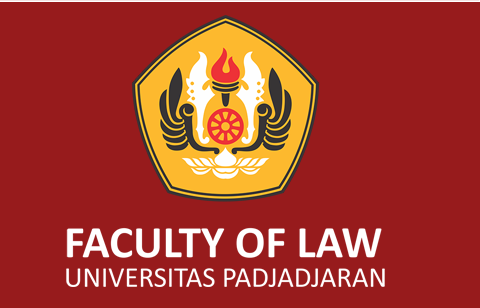Abstract
Nuisance messages, a form of unsolicited communication, often occurs between drivers and users of online transportation application services. The transmission of such messages represent a violation of privacy, infringing upon users' autonomy to control the information they receive and potentially causing both psychological and physical harm. Despite the fact, Indonesian law lacks explicit normative regulations addressing nuisance messages. Facing this condition, online transportation application services must must ensure user safety by providing a mechanism for users to object and avoid receiving such messages. This study aims to address two primary questions. Firstly, what forms of legal protection are currently available against nuisance messages under Indonesian positive law? Secondly, how can online transportation application service providers implement the right to object in order to optimize the protection of user privacy and personal data? This study employed a juridical- normative method with descriptive analysis to address the questions. The results indicate that Indonesian positive law can only refer to whether messages are sent in good faith and whether spam messages are sent in bulk. These can cause misinterpretation for providers and users. However, nuisance messages sent during the provision of a service demonstrate bad faith on the part of the driver. Therefore, to protect users, online transportation application services should implement a right to object through an electronic contract, thereby granting users greater control and balance
Recommended Citation
Sembiring, Patricia Edina; Ramli, Ahmad M.; and Rafianti, Laina
(2025)
"Legal Protection vs. Nuisance Messages in Online Transportation Application Services: the Right to Object as a Solution?,"
Padjadjaran Jurnal Ilmu Hukum (Journal of Law): Vol. 12:
No.
1, Article 1.
DOI: https://doi.org/10.22304/pjih.v12n1.a1
Available at:
https://journal.unpad.ac.id/pjih/vol12/iss1/1
References
Books
Ali, H. Zainduddin. Metode Penelitian Hukum. Jakarta: Sinar Grafika, 2015. Djafar, Wahyudi, Bernhard Ruben, and Blandina Lintang. Perlindungan Data Pribadi di Indonesia. Jakarta: ELSAM, 2016.
Fuady, Munir. Perbuatan Melawan Hukum Pendekatan Kontemporer. Bandung: PT Citra Aditya Bakti, 2005.
H.S., Salim. Hukum Kontrak Teori dan Teknik Penyusunan Kontrak. Jakarta: PT Sinar Grafika, 2019.
ICO. General Data Protection Regulation. United Kingdom: ICO, 2022.
Kamara, Irene and Paul De Hart. The Cambridge Handbook of Consumer Privacy. UK: Cambridge University Press, 2018.
Kuner, Christopher (et.al.) The EU General Data Protection Regulation A Commentary. United Kingdom: Oxford University Press, 2020.
LBH Pers. Hak Atas Penghapusan Informasi di Indonesia (Orisinalitas dan Tantangan Dalam Penerapannya). Jakarta: LBH, 2018.
Lessig, Lawrence L. Code Version 2.0. New York: Perseus Group, 2006.
Ramli, Ahmad M and Tasya Safiranita Ramli. Hukum Sebagai Infrastruktur Transformasi Indonesia. Bandung: PT Refika Aditama, 2022.
Riyadi, Eko. Hukum Hak Asasi Manusia Perspektif Internasional, Regional, dan Nasional. Jakarta: PT Raja Grafindo Persada, 2018.
Rosadi, Sinta Dewi. Pembahasan UU Pelindungan Data Pribadi (UU RI No. 27 Tahun 2022). Jakarta: PT Sinar Grafika, 2023.
Schwartz, Alan and Simson Garfinkel. Stopping Spam. United States: O’Rilley and Associates, 1998.
Westin, Ali. Privacy and Freedom. New York: Ig Publishing, 1967.
Other Documents
Anand, Ghansam (et.al.) “Legal Implications on Cancellation of Agreements Made Prior to Custody for Good Faith Land Buyers.” Padjadjaran Jurnal Ilmu Hukum 9, no. 2 (2022): 253-275. https://doi.org/10.22304/pjih.v9n2.a6.
Anant, Venka (el.al.) “The Consumer Data Opportunity and the Privacy Imperative.” (Risk Practice McKinsey & Companies-2020).
Andrews Kurth, Hunton. “CNIL Fines Google and Amazon 135 Million Euros for Alleged Cookie Violations.” Accessed on June 7, 2024. https://www.huntonak.com/privacy-and-information-security-law/cnil-fines- google-and-amazon-135-million-euros-for-alleged-cookie-violations.
Agus Priyono, Ery. “Peranan Asas Itikad Baik Dalam Kontrak Baku (Upaya Menjaga Keseimbangan Para Pihak).” Diponegoro Private Law Review 1, no. 1 (2017): 13- 22. Arifiani, Septina. “Layanan Ojek Online: Driver Ojek Dituding Lakukan Pelecehan Seksual Kepada Siswi.” Accessed on May 24, 2024. https://news.solopos.com/layanan-ojek-online-driver-ojek-dituding-lakukan- pelecehan-seksual-kepada-siswi-690842.
Astutik, Yuni. “21,7 Juta Masyarakat Indonesia Pakai Transportasi Online.” Accessed on June 5, 2024. https://www.cnbcindonesia.com/tech/20200317150135-37- 145529/217-juta-masyarakat-indonesia-pakai-transportasi-online.
Black’s Law Dictionary. “Unsolicited.” Accessed on May 9, 2024. https://thelawdictionary.org/?s=unsolicited.
Candidate 9011. “The Balancing of Interests.” (Thesis Paper Faculty of Oslo, 2021).
Clark Esseks, Dark. “Privacy in a Public Society: Human Rights in Conflict.” Michigan Law Review 87, no. 6 (1989): 1624-1630.
Dumas Manery, Barnabas. “Makna dan Fungsi Itikad Baik Dalam Kontrak Kerja Konstruksi.” SASI 23, no. 2 (2017): 136-148. https://doi.org/10.47268/sasi.v23i2.101.
E Sorkin, David. “Technical and Legal Aprroaches to Unsolicited Electronic Mail.” University of San Francisco Law Review 35, no. 2 (2001): 325-384.
Eka Prasetyo, Audi. “Apa yang Harus Go-Jek dan Startup Transportasi Lainnya Lakukan untuk Melindungi Privasi Pengguna?” Accessed on June 6, 2024. https://id.techinasia.com/talk/privasi-pengguna-go-jek.
GDPR. “What is GDPR, the EU’s New Data Protection Law?” Accessed on June 6, 2024, https://gdpr.eu/what-is-gdpr/.
Gilang Putranto, Wahyu. “Diancam Diperkosa Driver dan Fotonya Disebar di Facebook.” Accessed on May 24, 2024. https://www.tribunnews.com/nasional/2020/03/12/viral-cerita-penumpang- ojek-online-diancam-diperkosa-driver-dan-fotonya-disebar-di- facebook?page=all.
Hernawan, Adie Wiera. “Kurang Ajar Sekali Oknum Driver Ojol Ini, Baru Dapat Customer Malah Ngechat Nggak Senonoh.” Accessed on August 17, 2024. https://yoursay.suara.com/news/2022/09/28/175429/kurang-ajar-sekali- oknum-driver-ojol-ini-baru-dapat-customer-malah-ngechat-nggak-senonoh.
ICO. “One in Three Young People Falling Prey to ‘Text Pests’ as ICO Calls for Victims to Come Forward.” Accessed on June 6, 2024. https://ico.org.uk/about-the- ico/media-centre/news-and-blogs/2023/08/one-in-three-young-people-falling- prey-to-text-pests-as-ico-calls-for-victims-to-come-forward/. ___. “What is the ‘Legitimate Interests’ Basis?” Accessed on May 30, 2024. https://ico.org.uk/for-organisations/uk-gdpr-guidance-and-resources/lawfu basis/legitimate-interests/what-is-the-legitimate-interests-basis/.
J. Solove, Daniel. “A Taxonomy of Privacy.” University of Pennsylvania Law Review 154, no. 3 (2006): 477-560.
Kyi, Lin (et.al.) “Investigating Deceptive Design in GDPR’s Legitimate Interest.” CHI 23 (2023): 1-16.
Media Indonesia. “Pengguna Jasa Transportasi Online Rentan Jadi Korban.” accessed on June 6, 2024. https://mediaindonesia.com/humaniora/258049/pengguna- jasa-transpotasi-online-rentan-jadi-korban.
Peranto, Olsen. “Itikad Baik Dalam Ketentuan Pasal 27 ayat (2) UU No. 2 Tahun 2020, Perlukah diPermasalahkan?” Jurnal Rechts Vinding (2020): 1-5.
Pujiyono and Umi Khaerah Pati, “Legal Protection for the Loss of the Passenger of Online Transportation.” Yustisia 8, no. 2 (2019): 220-233. https://doi.org/10.20961/yustisia.v8i2.34156.
Puspitasari, Diah. (et.al.) “Urgensi Undang-Undang Perlindungan Data Pribadi Dalam Mengatasi Masalah Keamanan Data Penduduk.” Journal of Administrative and Social Science 4, no. 2 (2023): 195-205. https://doi.org/10.55606/jass.v4i2.403.
Rupp, Valentin and Max von Grafenstein. “Clarifying ‘Personal Data’ and Anonymisation in Data Protection Law: Including and Excluding Data from the Scope of the GDPR (More Clearly) Trough Refining the Concept of Data Protection.” Computer Law and Security Review 52 (2024): 1-25. https://doi.org/10.1016/j.clsr.2023.105932.
Santika, Erlina F. “Aplikasi Transportasi Online Terbanyak Diunduh RI 2023, Gojek Juaranya.” Accessed on May 5, 2024. https://databoks.katadata.co.id/datapublish/2024/01/23/aplikasi-transportasi- online-terbanyak-diunduh-di-ri-2023-gojek-juaranya.
Serna, Francisco Jose Aranda. “The Legal Regulation of Spam: An International Comparative Study.” Journal of Innovations in Digital Marketing 3, no. 1 (2022): 3-13. https://doi.org/10.51300/jidm-2022-44.
Tejomurti, Kukuh (et.al.). “Legal Protection for Urban Online-Transportation-Users Personal Data Disclosure in the Age of Digital Technology.” Padjadjaran Jurnal Ilmu Hukum 5, no. 3 (2018): 485-505. https://doi.org/10.22304/pjih.v5n3.a5.
Uber. “Privacy Policy.” Accessed on June 9, 2024. https://www.uber.com/global/en/privacy/overview/?uclick_id=6df63283-cd33- 4673-915f-6ab434140f31.
Wahyuni Laia, Sri. “Implementasi Perlindungan Hukum Terhadap Perempuan Sebagai Korban Tindak Pidana Pelecehan Seksual Dalam Transportasi.” Jurnal Panah Keadilan 2, no. 1 (2023): 15-24.
Warren, Samuel D. and Louis D. Brandeis. “The Right to Privacy.” Harvard Law Review 4, no. 5 (1890): 193-220. https://doi.org/10.2307/1321160.
Legal Documents
General Data Protection Regulation.
The 1945 Constitution of the Republic of Indonesia.
The Law Number 27 of 2022 on Personal Data Protection.
The Law Number 1 of 2024 on the Second Amendment to the Law Number 11 of 2008 on Electronic Information and Transactions.
The Government Regulation Number 71 of 2019 on the Implementation of Electronic Systems and Transactions.
The Government Regulation Number 80 of 2019 on Trading Through Electronic Systems.
Ministry of Communication and Information Regulation Number 20 of 2016 on Personal Data Protection in Electronic Systems.
DOI
https://doi.org/10.22304/pjih.v12n1.a1










